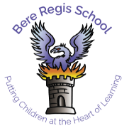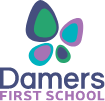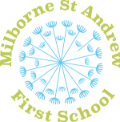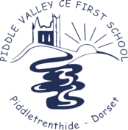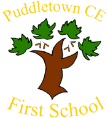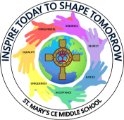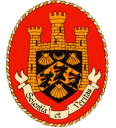
EYFS Curriculum
At Piddle Valley we are very fortunate to have an Early Years base, where Pre-School and Reception learn and play together. We use the Early Years Foundation Stage Framework to plan for all seven curriculum areas. This is supported by other documents, such as 'Development Matters', 'Birth to 5 Matters' and 'What to Expect, When?'. We are also users of key schemes to develop learning in phonics (Little Wandle for Letters and Sounds Revised), Maths (Master the Curriculum and NCETM), music (Charanga), PSHE (Jigsaw) and RE (The Emmanuel Project/Understanding Christianity).
Alongside these informative documentation and schemes, we plan our curriculum based upon early childhood pedagogy and connect regularly through training and reading the blogs of some of our EYFS heroes; Alistair Bryce-Clegg, Karen Wilding, Greg Bottrill, Shonette Bason-Wood, Trisha Lee, Kim Lawson, Pete Moorhouse and Penny Tassoni. This ensures our practice and the learning experiences for your children always have pedagogy at the heart, are up-to-date with fresh ideas!
What is the Early Years Foundation Stage?
The Early Years Foundation Stage (EYFS) is how the Government and early year’s professionals describe the time in your child’s life between birth and age 5.
This is a very important stage as it helps your child get ready for school as well as preparing them for their future learning and successes. From when your child is born up until the age of 5, their early years experience should be happy, active, exciting, fun and secure, and support their development, care and learning needs.
What is the EYFS Framework? – Why do we have one?
The EYFS Framework exists to support all professional working in the EYFS to help your child, and was developed with a number of early year’s experts as well as parents.
In 2021 the framework was revised to make it clearer and easier to use, with more focus on the things that matter most. This new framework also has a greater emphasis on your role in helping your child develop. It sets out:
- The legal welfare requirements that everyone registered to look after children must follow to keep your child safe and promote their welfare.
- The 7 areas of learning and development which guide professionals’ engagement with your child’s play and activities as they learn new skills and knowledge.
- Assessments that will tell you about your child’s progress through the EYFS.
- Expected levels that your child should reach at age 5, usually the end of the Reception year, these expectations are called the ‘Early Learning Goals.’
- There is also guidance for the professionals supporting your child on planning the learning activities, and observing and assessing what and how your child is learning and developing.
Characteristics of Learning
The Characteristics of Effective Learning and the prime and specific Areas of Learning and Development are all interconnected.
Characteristics of Learning include:
- Playing and exploring
- Active Learning
- Creating and thinking critically
The ways in which the child engages with other people and their environment – playing and exploring, active learning and creating and thinking critically – underpin learning and development across all areas and support the child to remain an effective and motivated learner.
The prime areas begin to develop quickly in response to relationships and experiences, and run through and support learning in all other areas. The prime areas continue to be fundamental throughout the EYFS.
What does it mean for me as a parent?
Ensuring my child’s safety
Much thought has been given to making sure that your child is as safe as possible. Within the EYFS there is a set of welfare standards that everyone must follow. These include the numbers of staff required in an Early Years setting and things like administering medicines and carrying out risk assessments.
Quality
You can find out about the quality of your child’s Early Years setting and other Early Years providers in relation to the EYFS Framework by checking what the Government’s official inspection body for early years, Ofsted has to say about it. You can find this information at www.ofsted.gov.uk/inspection-reports/find-inspection-report
How my will my child will be learning? What are the seven areas of learning and development?
The EYFS Framework explains how and what your child will be learning to support their healthy development. Your child will be learning skills, acquiring new knowledge and demonstrating their understanding through seven areas of learning and development.
Children should mostly develop through the three prime areas. These are:
- Communication and Language
- Physical Development
- Personal, social and emotional development.
These prime areas are those most essential for your child’s healthy development and future learning. As children grow, the prime areas will help them to develop skills in four specific areas. These are:
- Literacy
- Mathematics
- Understanding the world
- Expressive arts and design
These even areas are used to plan your child’s learning and activities. The professionals teaching and supporting your chid will make sure that the activities are suited to your child’s unique needs. Children in the EYFS learn by playing and exploring, being active, and through creative and critical thinking which takes place both indoors and outdoors.
Where can I go for further information?
Our Early Years Lead, Mrs Moore, is more than happy to talk with parents in relation to the Early Years Foundation Stage and your child’s individual development.
You can also find the Early Years Foundation Stage at; www.foundationyears.org.uk
The Foundation Years website also includes a range of resources and contacts.


